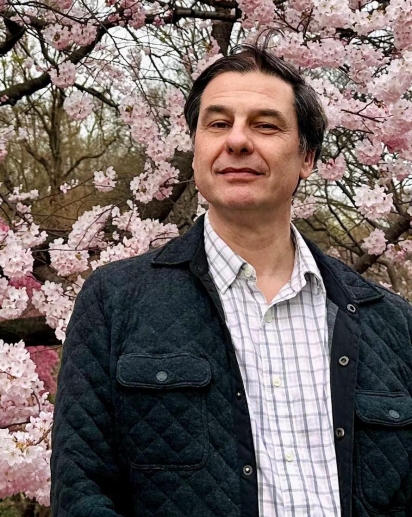MERL’s Virtual Open House 2025
November 18, 2025
Join us for MERL's virtual open house 2025 on November 18th. Live sessions will be held from 1:00-4:30pm EST, including an overview of recent activities by our research groups, a featured guest speaker and live interaction with our research staff. Registered attendees will be able to browse our virtual booths at their convenience and connect with our research staff on engagement opportunities, including internship/post-doc openings as well as visiting faculty positions.
Details
- Date: Tuesday, November 18, 2025
- Time: 1:00 - 4:30 PM EST
Live Session Schedule
| 1:00 - 1:25 EST |
Auditorium A Welcome / Opening Remarks |
|||
| 1:25 - 2:05 EST |
Auditorium A Keynote "Neuroresponsive Music: Deep Learning Approaches to Auditory Perception, Imagination, and Clinical Auditory Stimulation." Michael A. Casey , Dartmouth College |
|||
| Group Introduction & Opportunities | ||||
| 2:10 - 2:35 EST |
Auditorium A Speech & Audio Jonathan Le Roux |
Auditorium B Computational Sensing Petros T. Boufounos |
Auditorium C Controls for Autonomy Stefano Di Cairano |
Auditorium D Optimization & Intelligent Robotics Diego Romeres |
| 2:35 - 3:00 EST |
Auditorium A Computer Vision Anoop Cherian |
Auditorium B Connectivity and Information Processing Ye Wang |
Auditorium C Electric Systems Automation Yebin Wang |
Auditorium D Multi-Physical Systems Scott A. Bortoff |
| 3:00 - 4:30 EST | Open Interaction with MERL Researchers | |||
Featured Guest Speaker
Prof. Michael A. Casey, Dartmouth CollegeNeuroresponsive Music: Deep Learning Approaches to Auditory Perception, Imagination, and Clinical Auditory Stimulation.
Abstract: In this talk, I will present recent research from my lab on decoding auditory perception and imagination from human brain activity using self-supervised and transfer learning frameworks. We apply deep learning models to functional MRI and intracranial electrophysiology (ECoG/iEEG) data to map neural representations of real and imagined sound. Building on these models, we investigate how tempo-modulated musical stimuli influence epileptic brain dynamics in patients with surgically implanted electrodes. Our findings reveal that certain musical features can significantly reduce epileptiform activity. By performing causal inference on model-derived feature representations, we identify which acoustic and temporal properties most strongly contribute to these neurophysiological effects. This approach enables the recommendation and generation of clinically beneficial music tailored to individual neural profiles. Our broader goal is to develop non-invasive, low-cost, and personalized neuro-responsive music systems for the treatment of epilepsy and other brain disorders.

Michael Casey is the Francis and Mildred Sears Professor in Computer Science and Music at Dartmouth, NH, USA. His lab conducts research in music informatics, auditory neuroscience, and neurologic music therapies. Funding for his research has been awarded by the National Science Foundation (NSF), the Mellon Foundation, the National Endowment for the Humanities, and the Engineering and Physical Sciences Research Council (EPSRC, UK).
Virtual Exhibit Booths
Attendees are invited to visit our virtual booths to learn more about MERL's research activities and internship opportunities. These virtual spaces will provide:
- Materials that provide a more in-depth view of our latest research results
- Links to relevant internship, post-doc, and full-time opportunities
- An opportunity to interact live with MERL researchers
The event will feature 18 virtual booths in the following research areas:
- 3D Computer Vision
- Multimodal Reasoning and Generative AI for Computer Vision
- Visual Analysis
- Optimization Algorithms & Power Systems
- Human-Robot Interaction
- Robotic Manipulation
- Mobile Robotics and Drones
- Autonomy for Spacecraft
- Spatiotemporal Dynamics and Learning
- Computational Sensing
- Multimodal scene understanding
- Acoustic and audio analysis
- Physics-Informed Learning for Design & Control
- Predictive Maintenance for Electric Systems
- Efficient Agentic AI
- IoT Communications
- Model-based Design and Control for Multiphysical Systems
- Machine Learning and Estimation for Digital Twins
Contact Us
If you are experiencing any issues with registration or accessing the event site, or would like further information about this event, please contact us at
.